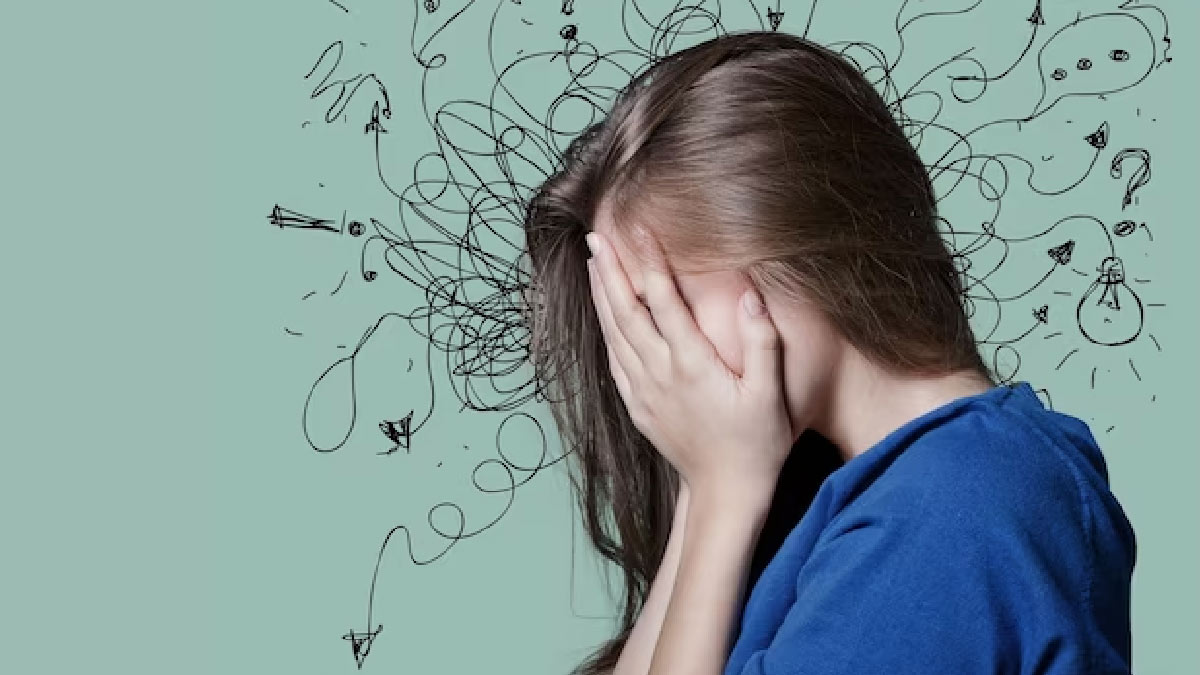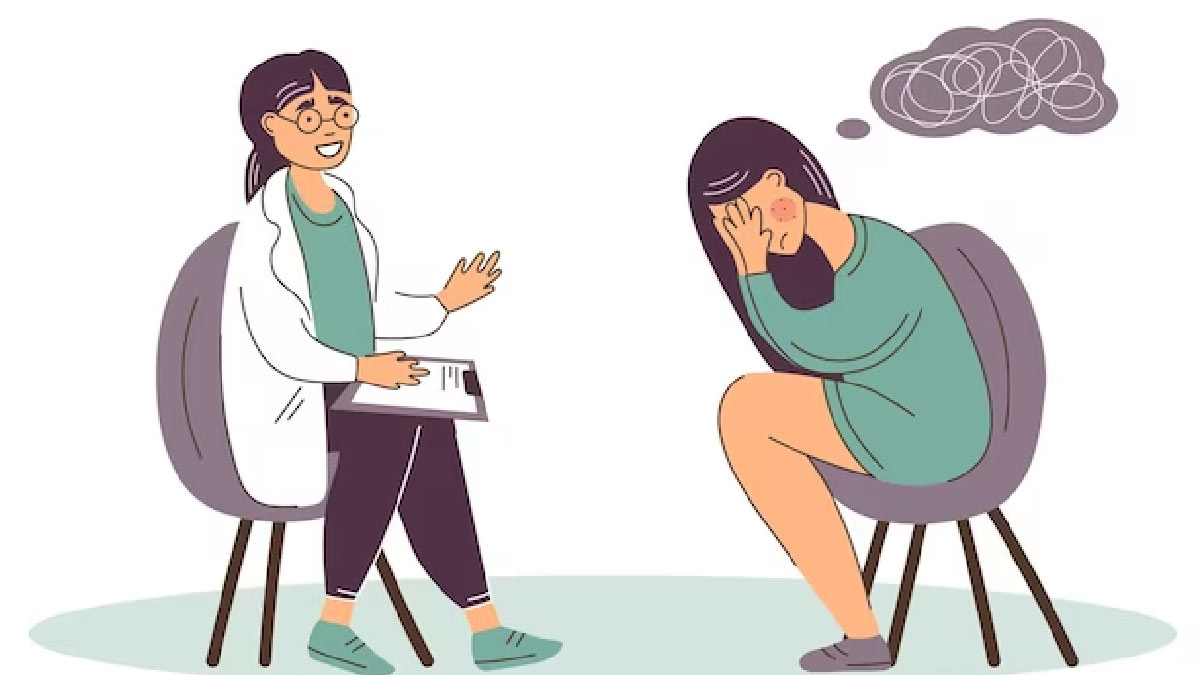
Anxiety is a normal part of life, and many people experience it in response to pressures. But, if these symptoms become chronic, and severe, and interfere with daily life, they may indicate an anxiety condition. One major aspect that hinders anxiety management, is the stigma surrounding mental health which often hinders people from seeking help.
Table of Content:-
CHECK YOUR
MENTAL HEALTH

However, addressing anxiety requires a multifaceted approach, emphasising destigmatisation and fostering open conversations. In that spirit, the OnlyMyHealth team spoke to Gayatri Sai Kasturi, Counselling Psychologist, LISSUN, and Dr Gorav Gupta, Psychiatrist and Co-Founder, Emoneeds, to develop a comprehensive guide on anxiety and anxiety disorders.
What Is Anxiety?
Kasturi defined anxiety as "A natural and adaptive response that humans have to perceived dangers or pressures. It is an essential component of the body's 'fight or flight' response, a natural survival strategy that has evolved over time."
"Anxiety manifests in diverse ways, from generalised anxiety disorder to social anxiety and panic disorders, impacting individuals’ daily lives and overall well-being," added Dr Gupta. He suggested that to effectively diagnose anxiety, first, you need to learn how to recognise it, which involves acknowledging both the psychological and physiological symptoms, such as persistent worry, restlessness, and increased heart rate.
The symptoms of anxiety are threefold. They usually manifest as a combination of physiological, cognitive, and behavioural reactions, shared Kasturi:
- Physiological Reactions: The body prepares to face a potential threat by generating stress chemicals like adrenaline, which raises the heart rate, and increases attention.
- Cognitive Reactions: People may have racing thoughts, anxiousness, and a sensation of approaching danger.
- Behavioural Reactions: Anxiety can cause people to avoid particular circumstances or seek reassurance.
Anxiety Disorder Explained
However, the problem begins when anxiety starts manifesting into an anxiety disorder. Dr Gupta provided some key statistics. He said, "With 74% of the Indian population experiencing stress and a staggering 88% grappling with various forms of anxiety disorders, the prevalence of these mental health challenges is undeniable."
"While anxiety is a normal part of life and can improve performance in difficult situations, it becomes troublesome when it is disproportionate to the genuine threat, lasts for an extended period, or significantly impairs daily functioning. When anxiety reaches this degree, it may be diagnosed as an anxiety disorder," explained Kasturi.
Also Read: Dealing With Anxiety? Expert Recommends That Vitamin D and Magnesium Can Help You

Talking about the causes of anxiety disorder, she listed:
- Genetic predispositions
- Brain chemistry
- Personality traits
- Traumatic events
- Chronic stress
- Certain medical problems
Anxiety Treatment
Dr Gupta opined, "Understanding anxiety is imperative in addressing the rising mental health challenges faced by individuals." That is why it is essential for a heightened awareness around this mental health condition, beyond its casual use all over social media.
"Managing anxiety requires a diverse strategy," said Kasturi as she listed some tips to manage out-of-hand anxiety:
- Practise deep breathing and mindfulness techniques
- Get regular exercise
- Live a balanced lifestyle with an emphasis on nutrition and sleep
- Use cognitive-behavioural tools like confronting negative beliefs
- Practice time management
- Seek social support and seek professional treatment, such as therapy
- Prioritise self-care tasks
- Be patient in determining the best combination of tactics for you.

Seeking Professional Help
Both Kasturi and Dr Gupta recommended that if your anxiety symptoms start getting out of hand or uncontrollable, seeking professional help becomes paramount. "Remember that controlling anxiety is an ongoing process, and seeking help is an important step towards wellness," said Kasturi. Dr Gupta added, "Mental health professionals, equipped with the expertise to provide tailored interventions and therapeutic support, play a pivotal role in alleviating the burden of anxiety."
They concluded that encouraging a culture that promotes mental health awareness and understanding is even more crucial in empowering individuals to proactively address their anxiety and seek the necessary professional assistance. If you or someone you know is consistently experiencing distressing anxiety symptoms, seek prompt consultation from a mental health professional for a thorough examination and appropriate support.
Also watch this video
How we keep this article up to date:
We work with experts and keep a close eye on the latest in health and wellness. Whenever there is a new research or helpful information, we update our articles with accurate and useful advice.
Current Version